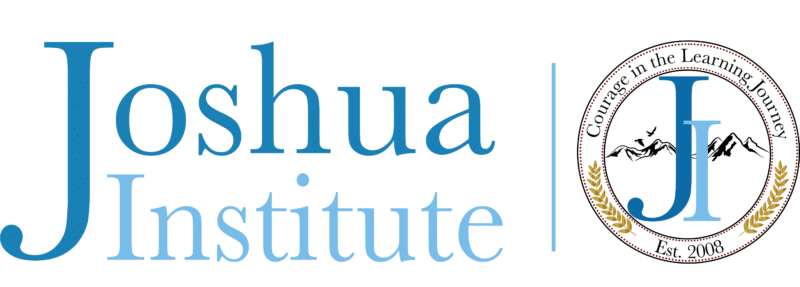Testing Services
Joshua Institute provides nationally accredited testing that is necessary for determining if a student may have factors interfering with the learning process. Results are used to determine the student’s strengths and weaknesses, as well as his or her need for academic support and intervention. Please note that our testing is not for diagnosing learning disabilities.
Available Tests
Formal Assessments
- Woodcock Johnson Tests of Cognitive Abilities
- Woodcock Johnson Tests of Academic Achievement
- Formal Reading Assessment
- BASC-III
Informal Assessments
- Alphabet/Numbers
- Dictation/Copy
- Composition
- Days/Months
- Draw a Person
- Draw a Clock
- Bender
Testing Process
For students with no testing or outdated testing results
- The student is referred for testing
- Parent fills out our online application and, if possible, gathers feedback and data from teachers
- Student will undergo academic, cognitive and informal testing. BASC-III is given if needed
- A comprehensive report is written using the application information, test data, and teacher feedback
- Parent consultation
Testing Process
For students with qualified testing approved by administration
- The student is referred for testing
- Parent fills out our online application and provide previous test data
- Only the informal tests are administered to the student. No report is written
- Parent consultation
Summary and Recommendations
Test results will be reviewed by the examiner in order to create and recommend an appropriate intervention plan, if necessary. The information will be used to determine a pattern of strengths and weaknesses according to all test data received. Scores will be evaluated to determine if there is a variation in performance and ability. If this variation is evident, educational coaching that may include educational therapy, executive functioning intervention, or a combination will be recommended in order to develop academic and cognitive challenges. Identifying these areas is key to improving overall academic experiences and to prevent future academic difficulties.
It may also be necessary to recommend classroom strategies and accommodations to address weaknesses during the time the student is receiving intensive intervention. Some accommodations our educators may consider for your student include:
- Instructions written out to ensure student’s understanding of classroom and homework expectations
- Multi-sensory strategies for learning spelling rules not yet mastered
- Tests given orally when necessary to determine the student’s level of understanding concepts
- Decreased homework with the goal of assessing quality rather than quantity, especially in the areas of writing and math
- Increased time for tests and/or homework assignments
It is very important to understand that these and other accommodations and strategies are limited in directly remediating a student’s challeneges. Strategies and accommodations are best used in conjunction with intensive intervention. This crucial combination allows for student success while remediating deficits in cognition and academics. Together, intensive intervention and classroom accommodations help the student develop the independent learning skills necessary for ongoing academic success.

2150 W Cherry Lane
Meridian, ID 83642
208.893.5130
